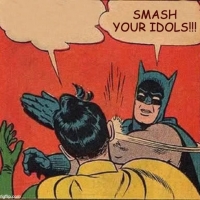DjangoBooks.com
Welcome to our Community!
Categories
- 20K All Categories
- 1.1K General
- 485 Welcome
- 60 Archtop Eddy's Corner
- 147 CD, DVD, and Concert Reviews
- 385 FAQ
- 26 Gypsy Jazz Italia
- 27 Photos
- 209 Gypsy Picking
- 21 Unaccompanied Django
- 15 Pearl Django Play-Along Vol.1
- 17 Gypsy Fire
- 45 Gypsy Rhythm
- 1.4K Gypsy Jazz University - Get Educated
- 131 Gypsy Jazz 101
- 231 Repertoire
- 227 History
- 709 Technique
- 51 Licks and Patterns
- 6 Daniel Givone Manouche Guitare Method Users Group
- 20 Eddie Lang Club
- 1.3K Gypsy Jazz Gear
- 816 Guitars, Strings, Picks, Amps, Pickups and Other Accessories
- 465 Classifieds
- 52 Recording
- 63 Other Instruments
- 18 Violin
- 5 Mandolin
- 22 Accordion
- 7 Bass
- 11 Woodwinds
- 351 Gypsy Jazz Events
- 144 North America
- 112 Europe
- 95 International
In this Discussion
Who's Online (0)
"Aha!" moments studying gypsy jazz
 wim
ChicagoModerator Barault #503 replica
wim
ChicagoModerator Barault #503 replica
What "aha!" moments have you had in your studies which really pushed your improvisation to a new level? Here are a few of mine ..
1. realising that m6, m7b5, dominant 9 were really the same chord
2. noticing that augmented chords could shift 4 frets the same as diminished chords could shift 3 frets
3. finding that the 3rd and the m7th swap places in a tritone sub, and later ...
4. ... finding that the 9th and the b13th do the exact same trick
5. joining the fretboard up with the CAGED shapes
Not exactly recent discoveries, but they're some things that really opened doors in my playing and maybe they can help other people too (plus maybe other people have some good ones that can help me!). No.1 in particular just made so many things click together, and even though I was aware of the fact on a theory level it was quite some time before I grokked it enough to instinctively use in practice - once it was fluent it was suddenly like everything I already had under my fingers became 3 times as useful.
1. realising that m6, m7b5, dominant 9 were really the same chord
2. noticing that augmented chords could shift 4 frets the same as diminished chords could shift 3 frets
3. finding that the 3rd and the m7th swap places in a tritone sub, and later ...
4. ... finding that the 9th and the b13th do the exact same trick
5. joining the fretboard up with the CAGED shapes
Not exactly recent discoveries, but they're some things that really opened doors in my playing and maybe they can help other people too (plus maybe other people have some good ones that can help me!). No.1 in particular just made so many things click together, and even though I was aware of the fact on a theory level it was quite some time before I grokked it enough to instinctively use in practice - once it was fluent it was suddenly like everything I already had under my fingers became 3 times as useful.
Tagged:













Comments
could you explain this.
I know all the other ones above but find them useless once I start playing...:)
I can add another useless tip Charles.
www.scoredog.tv
2. Enclosures.
3. Not using playalongs, just my metronome and forcing myself to know where I am in the song (work in progress)
4. Stop looking at grilles and tabs and learning songs by ear
5. Yummy tritones.
-------------------2-----5. Etc
--------1----4-----------------------------------------------
----3---------------------------------------------------------
instead of
----------------------5-----8. Etc
-----------4-----7---------
--3----6---------------
I tend to play my dim arps the same way because I originally learned it from Eddie Lang's 1927 record with Bix "Singin' the Blues". I deliberately tried not to make the run sound like Django because I was playing in a 1920s band and didn't want to be inauthentic.
Naturally, I suspect that Stochelo, like me, can also play the arp the "Django" way if he really wants to, but somehow the first way just fell under my fingers a bit easier.
Edgar Degas: "Only when he no longer knows what he is doing does the painter do good things.... To draw, you must close your eyes and sing."
Georges Braque: "In art there is only one thing that counts: the bit that can’t be explained."
This is something that jazzaferri aka jay is fond of talking about--- that magical feeling you get when you are somehow simultaneously inside and outside yourself and just relaxed and listening to the music almost as if someone else was playing it.
I can hit this level fairly often now when I play with backing tracks, but it's still a real challenge for me to do it when playing unaccompanied or with a metronome...
Edgar Degas: "Only when he no longer knows what he is doing does the painter do good things.... To draw, you must close your eyes and sing."
Georges Braque: "In art there is only one thing that counts: the bit that can’t be explained."